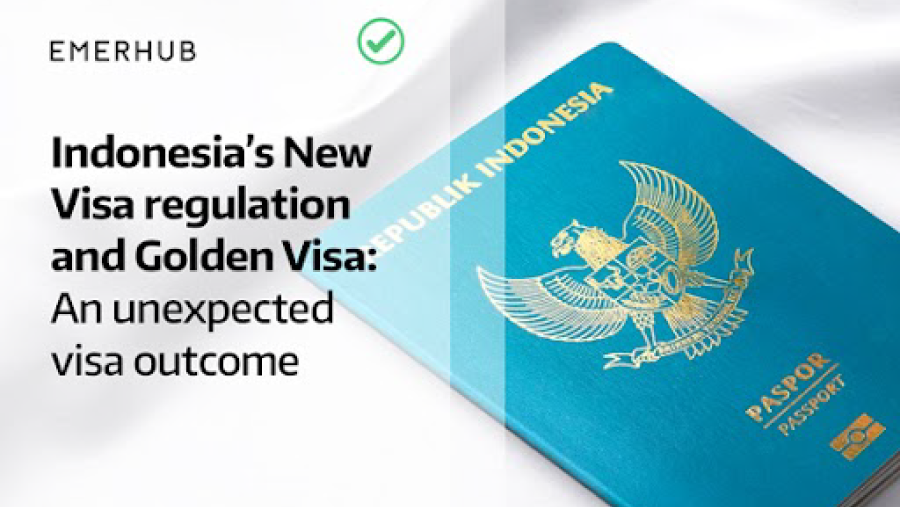Table of contents
This article will give you an overview of the requirements and processes of setting up a foreign-owned import company in Indonesia.
In this brief video, Marlissa Dessy, the director of Emerhub, gives you a quick overview of the most important aspects of registering a foreign company in Indonesia:
Allowed foreign ownership of import company in Indonesia
Import companies fall under the “importation and distribution” business classification which does not have any foreign ownership restrictions, meaning they can be owned by up to 100% foreign capital.
#1 Import-export company
If your only aim is to import and distribute goods, you can set up a 100% foreign-owned import-export company in Indonesia.
#2 E-commerce
E-commerce stores are treated the same as traditional retailers, with the exception that you must obtain an additional license for electronic transactions (Izin Usaha Perdagangan melalui sistem elektronik).
#3 Direct selling/multi-level marketing
If your import company is also going to engage in direct selling or multi-level marketing while holding an import license, your company can have 100% foreign ownership.
However, you will also need an additional Direct Selling Operating License (SIUPL).
The minimum capital requirement for a trading company in Indonesia
The official minimum capital requirement for foreign-owned companies in Indonesia is IDR 10 billion (~US$ 700,000).
If you would like to combine more than one business activity under the same company, the minimum paid-up capital will be the same, unless the activities fall under different business activity groups.
Find more details about when and how to inject the minimum capital in Indonesia in our previous article.
Nominee shareholders in Indonesia
Foreign ownership restrictions and minimum capital requirements are the two main reasons why some foreign investors use nominee shareholders when setting up a company in Indonesia.
A nominee shareholder is a person or an entity that is the registered owner of shares of a company on behalf of the real owner. However, note that when you use an individual nominee, especially without the correct set of legal agreements, you won’t have full control over your assets.
Therefore, make sure you use nominee shareholders in Indonesia the safe way, through a set of legal documents drafted by lawyers and provided by professional service providers such as Emerhub.
How to set up an import company in Indonesia
After determining the type of trading you want to engage in and the allowed foreign ownership in that classification, the process of company registration can begin.
| 1. Incorporation | 2. Licenses (if required) | 3. Product Registration (If needed) |
| – Article of Incorporation – Ratification from Ministry of Law and Human Rights NIB (Which also acts as your import license) – NPWP | PSE/ Electronic Processing License | – Article of Incorporation – Ratification from the Ministry of Law and Human Rights NIB (Which also acts as your import license) – NPWP |
The first phase, the company incorporation, only takes about a week. For additional licenses, you’ll need around one to six months, depending on the type of license and products.
Product registration in Indonesia
Depending on the type of products you wish to import, there are several Ministries and/or governmental institutions involved in the registration process. Here are some common examples.
| Type of product | Institution |
| Personal Care, Cosmetics, Foods, Health Supplements, Perfumes | BPOM/ FDA |
| Medical Devices, Household Items (detergents) | Ministry of Health |
| Lubricants for motor oil | Ministry of Oil and Gas |
| SNI for sugar, Ceramic, Cables, Safety shoes, Toys, Lubricants for motor oil | Ministry of Industry |
| Toys, Textile | Ministry of Trade |
Additional requirements for import companies in Indonesia
The variety of products that can be imported to Indonesia is vast and the area is too heavily regulated for most nuances to be explored in our short article. We can, however, include some relatively common issues that we have come into contact with.
Pre-shipment assessment (Laporan Surveyor/ Surveyor Report)
Be aware of the products subject to the Product Conformity Assessment (PCA) requirements. This means that your goods will be inspected before shipment and the procedure must be done through appointed agents.
This involves products from the LARTAS (prohibited and limited) list.
Storage charges on delays
Cargos shipped to Indonesia that cannot be immediately cleared by the Customs will incur storage charges and often hefty penalties.
The consignee may be left with options such as:
- Re-export (if possible)
- Re-address to different consignee/ Importer of Record
- Abandon the cargo (sometimes the price of re-export or re-address is higher than the value of the shipment).
To avoid this, double-check to make sure all procedures prior to your shipment reaching Indonesia are complete.
Alternatives to setting up an import company in Indonesia
Registration of a foreign-owned import company and obtaining the product licenses (especially if your product is in the LARTAS list) can roughly take up to 4 months in Jakarta and even longer in other cities.
However, if you want to start importing goods to Indonesia sooner or to test the market first, there are two other ways to do so.
#1 Use an importer of record service
An importer of record service (IOR) allows you to import products to Indonesia without incorporating a legal entity or acquiring any licenses in Indonesia.
Moreover, an IOR will also take compliance with local laws, documentation and tax liabilities off your shoulders.
Using an IOR also lets you focus on your main business. You delegate the obligation to deal with local bureaucracy to a third-party service provider, such as Kickrate (Emerhub is an investor).
Read our previous article about the benefits of using an importer of record service in Southeast Asia to learn more.
#2 Open a representative office
If your company will not earn revenue locally, the fastest way to is to set up a representative office for trading (KP3A). This option does not allow you to import your own goods, but allows you to manage the parties involved in the shipment (your buyer and your Importer of Record)
Find more detailed information in our previous article about setting up a representative office in Indonesia.
How to start with setting up an import company in Indonesia?
When using Emerhub’s assistance, all you need to do is to provide is with the necessary information. Our experienced consultants will take care of the paperwork as well as the communication with relevant authorities.
Starting with your import company registration in Indonesia is only one step away. Visit our company registration page or contact us by filling in the form below.







